How to keep your child engaged and entertained during the coronavirus pandemic
Wearing oversized, clip-on earrings that eclipse her earlobes and bright pink lipstick as she pretend-sips from the fancy china, 3-year-old Madeleine enjoys playing dress-up with her mother Melissa Uroff Millner when they celebrate their “unbirthdays” with homemade desserts.
It’s one playtime activity that Millner says adds a little fun to the day as she, like many other parents, continues to adjust to home life during the coronavirus pandemic.
As gallery manager at WAL Public Market on R Street, Millner says she was planning April’s exhibit for local artist Jonathan Buck when Gov. Gavin Newsom issued the stay-at-home order. Work is now postponed tentatively until May, so Millner is spending even more time with her daughter, who has always followed her like a little bird.
“She’s with me a lot anyways, so I’m used to her being around, but I’m not quite used to not being able to leave the house or not being able to have a break,” she says.
When neighborhood playgrounds are off limits, schools are closed until further notice and virtual play dates are the new norm, parents and teachers alike are seeking new and creative ways to entertain and educate children at home.
“She pretty much does whatever I do. If I’m working on art, she’s working on art. If I’m typing on the computer, she has an old typewriter that she can type on.”
Melissa Uroff Millner
mother, artist
Millner borrowed a piece of wood from her backyard planter box and had her daughter paint the board in her favorite colors. Then, she drilled two holes on both sides, weaved through some rope and hung the makeshift swing from a sturdy tree in the front yard.
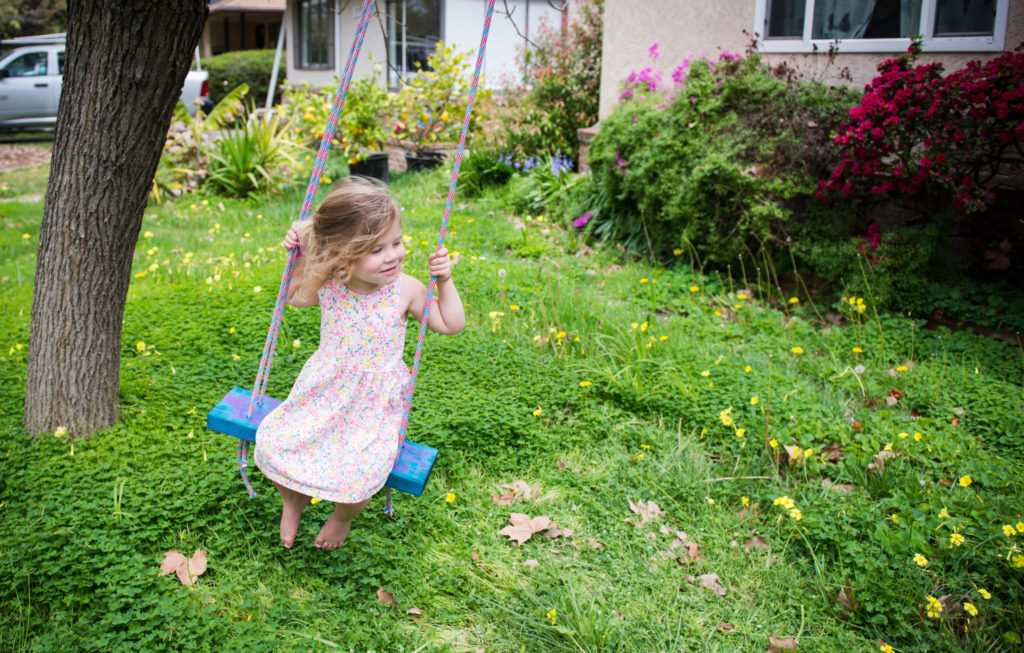
“She’s so excited,” Millner says. “She keeps saying, ‘You brought the park to our house!’”
Millner says she’s also not one to shy away from messy arts and crafts projects because it’s all about encouraging her daughter to explore.
“If you have little, little guys like toddlers, playing with shaving cream is really fun,” Millner says. “You can also put watercolors inside of spray bottles, and then I have an old drop cloth that I let her spray on. It’s almost like spray painting for kids. They think it’s cool. We paint a bunch and we’ve drawn each other a lot. That’s fun to do, to see our portraits of each other.”
Virtual reality
Staying connected with her students has been Sarah Rambo’s main focus since Sacramento area schools started closing March 16. A first grade teacher at Greer Elementary, she’s worked on ideas that combine academics with social interaction on and off the computer screen. She says the San Juan Unified School District is trying to get technology to all students who need it.
“I tried to hold a morning meeting on Monday and I had about six kids show up and it just made me tear up seeing their little faces,” Rambo says of her first virtual class. “I think it’s important, too, for them to see each other. They need to see and talk to each other. This is such a different world for them right now.”
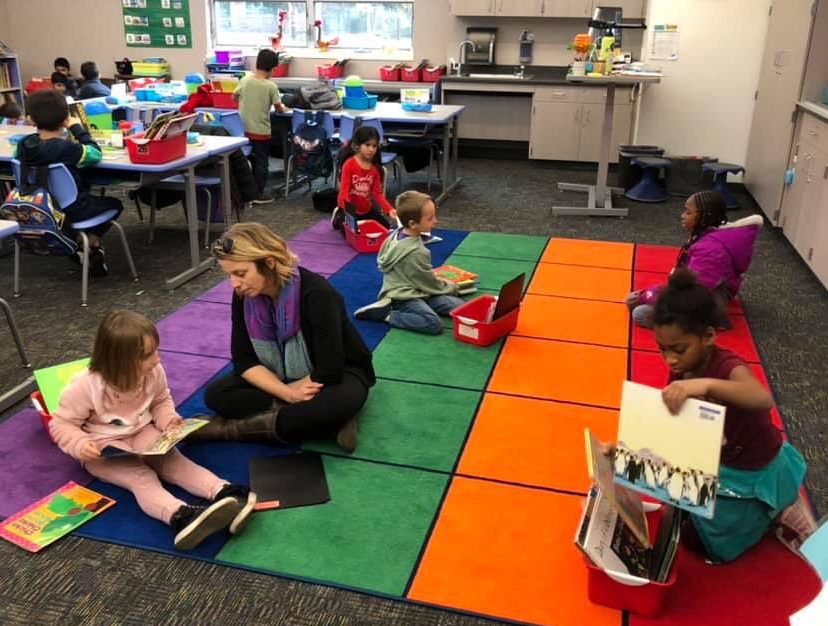
Her goal is to get her online classroom to a point where once a day her students can log on and see their friends, hear a story or talk about what’s going on in their lives, just to get a little bit of normalcy back.
“A lot of educational sites are now making their stuff free that usually schools or parents would have to pay for,” Rambo says. “One example is Epic, which has free books online that kids can read or have read to them. And there’s Storyline Online, which is celebrities reading you a story.”
After your child reads his or her favorite book, Rambo suggests having them write about what they read to develop their literacy skills. If your child isn’t writing full sentences quite yet, have them draw and color a picture about their favorite part of the book.
“As a teacher, you want to push all these academics, but also for their own mental health, their brain development, they need to harness that creativity and feel like they accomplished something that they’re proud of,” Rambo says.
Some academic challenges parents can incorporate at home include building an obstacle course with different math problems at each station using homemade flash cards, or creating a puppet show and asking your child to write the script and develop their own characters.
But Rambo also says parents shouldn’t be afraid to let their kids lean into “the importance of being bored” as it’s an opportunity for kids to let their imagination flow and see what sparks.
“I think doing creative activities is one of the best ways to get a lot of different aspects of learning all in one,” Rambo says. “There’s just so many hidden little ways that they’re actually learning that may not be as apparent, but they’re definitely happening.”
Home sweet home
Playing outside in the sunshine, reading books quietly while tucked into a big, comfy chair and learning about the different habitats and plants in his shaded backyard are just a few highlights from 5-year-old Odin’s normal routine.
His mother, Julia Garcia, has home-schooled her son for the past two years and says the most important step parents can take during this transition is to set up a space, big or small, dedicated to your child’s ability to learn and explore.
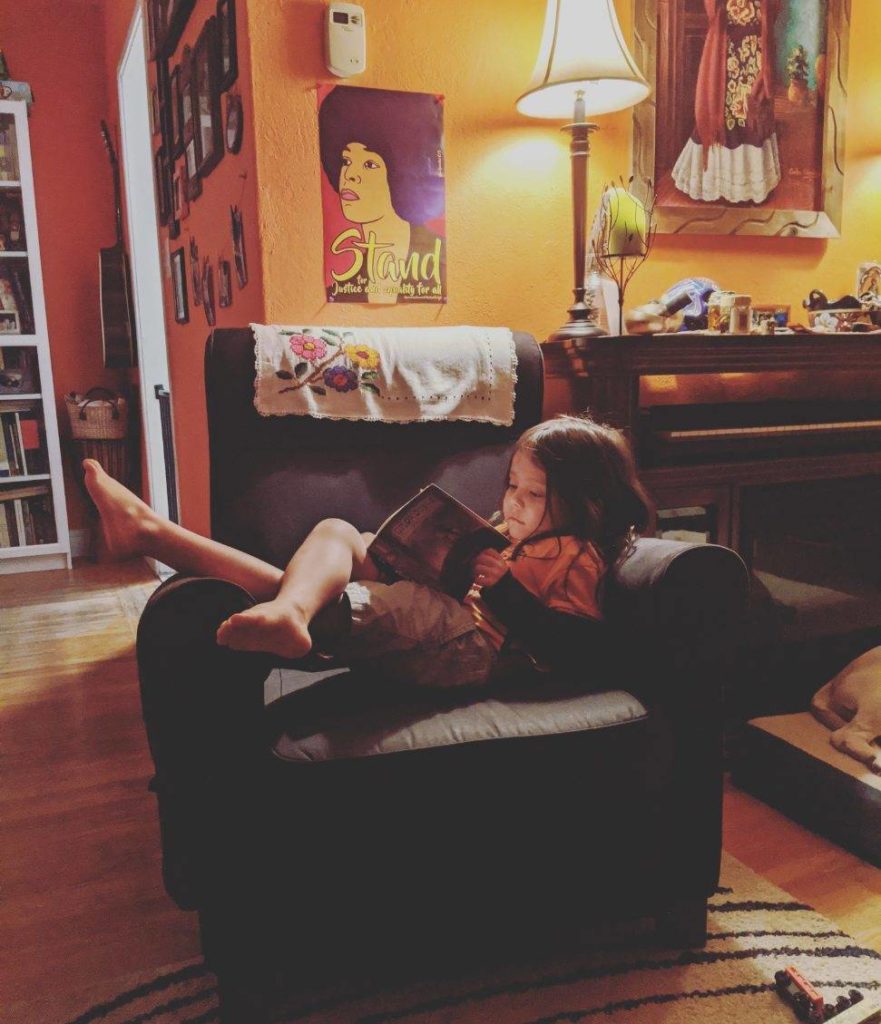
“He has many in our house, but if you can just provide a clean table or a corner in the kid’s room with some comfy pillows where they can sit and read their book, it really helps—and it doesn’t have to be fancy,” Garcia says.
For science lessons, Garcia incorporates her son’s interests such as plants and animals.
“So for example, I’ll have him go outside and connect to a plant. He likes lamb’s ear … so he’ll draw a picture about the plant and then under the picture I’ll ask him to write some facts about the plant,” Garcia explains.
When it comes to math, Garcia says she often uses cooking to illustrate addition and subtraction. Plus, it’s always fun to eat your homework.
“That’s one thing I’ll go to the most. You learn so much. You learn basic skills of sharing and math,” Garcia says. “It can be as simple as making rice for dinner because you’re asking him to use the measurement cups and he’ll be like, ‘OK. I need one cup of rice and two cups of water.’ So he’s learning how to measure.”
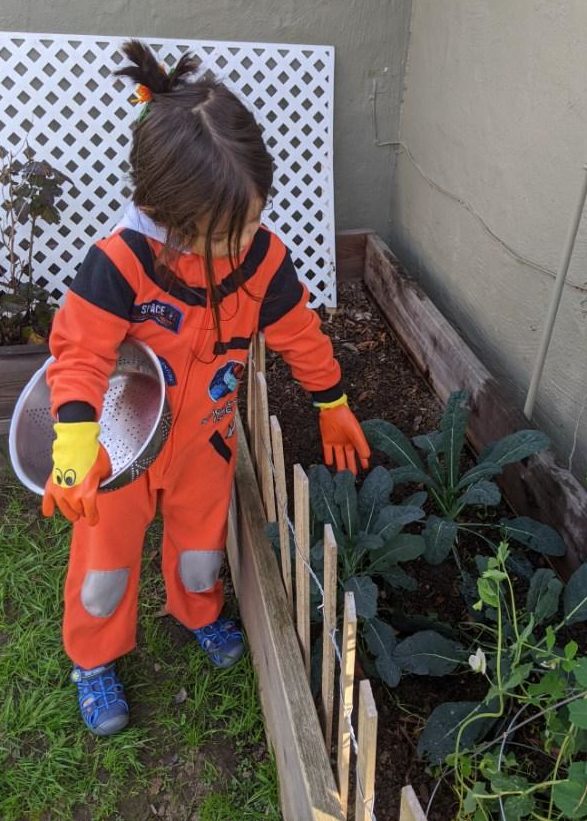
Through art projects, Garcia is teaching her son the importance of reusing recycled materials. Over the past few weeks, Odin and his mom used household items such as cardboard, Popsicle sticks, crayons, decorative paper and leftover fabric to create tiny houses.
“Art is my best friend, I will say that, and you can find anything your child’s into on Pinterest,” Garcia says. “I’m trying to teach Odin to reuse a lot of things with stuff that’s lying around the house. Daily activities are always opportunities for kids to learn.”
More resources for parents
Go Noodle: The website provides kids with songs and dances for them to burn energy.
Sami’s Circuit: Motivational speaker Sami Kader often travels to schools in the Sacramento area with positive messages that build self-esteem, health and wellness. Weekdays at 1 p.m., Kader hosts live stream workouts designed for kids.
Storyline Online: Celebrities including Viola Davis, James Earl Jones and Betty White read your child’s favorite books to them. A perfect segue to bedtime or a bit of quiet time after lunch.
Get Epic: This site has tons of free books for kids, including popular favorites such as the Captain Underpants series and the unpredictable lessons of Ms. Frizzle on The Magic School Bus.

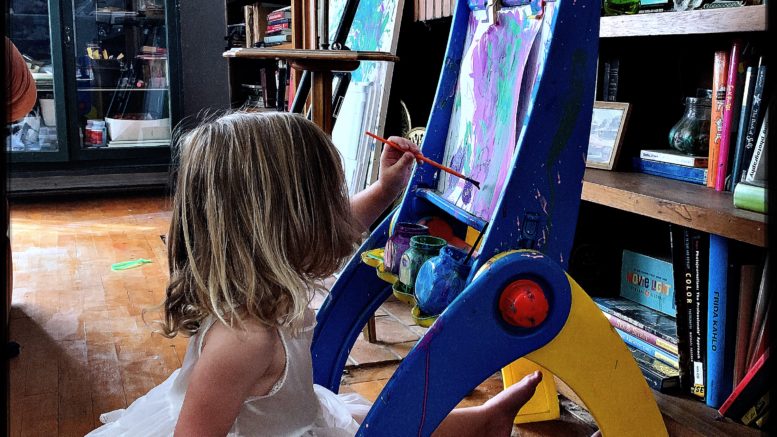

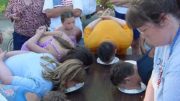
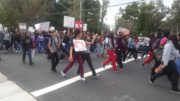

Help Ms. Rambo to reach more of her students by making a donation. She has a GoFundMe going to get laptops for her students whose families don’t have them: https://www.donorschoose.org/project/we-need-equitable-access-during-shutdown/4850139/
Melissa is very very talented . She has been artistic her whole life and Madeleine is learning so much from mom about the art world and doing things that make you happy. I’m a very proud mom?